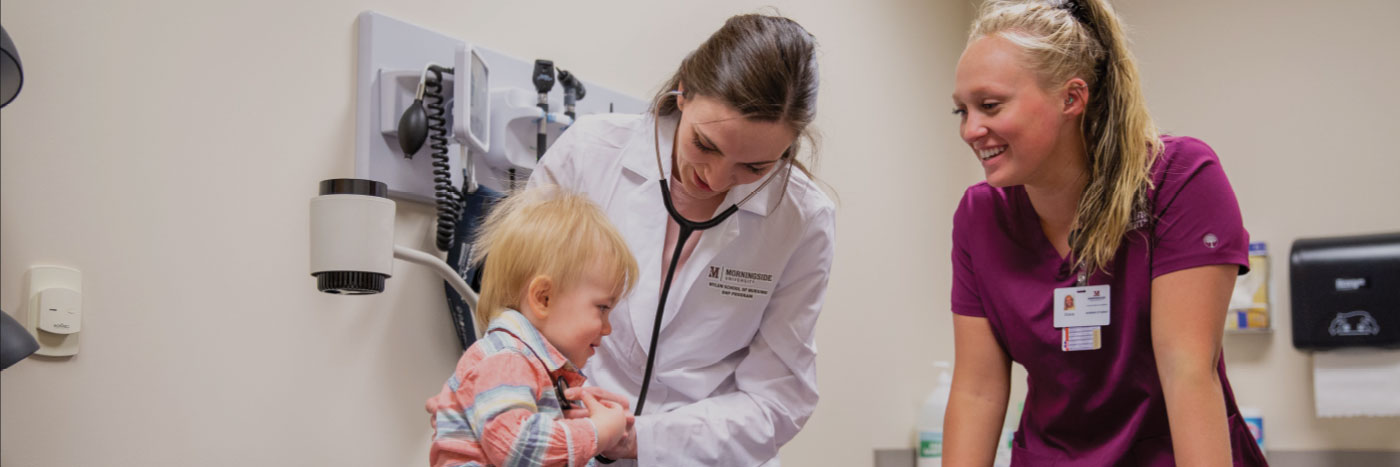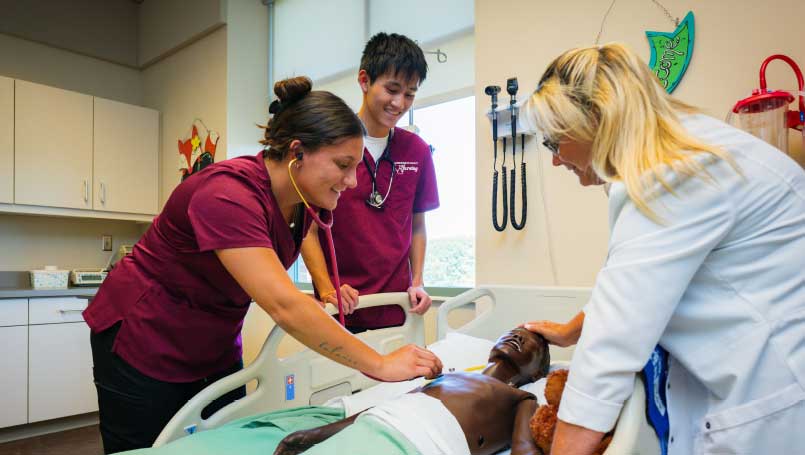
Regan Peters
Le Mars
Nursing
Emphasizing how Morningside faculty/staff and friends shaped her positive experiences
View Regan Peters’s Story
The Nylen School of Nursing baccalaureate degree program in nursing, master’s degree program in nursing/Doctor of Nursing Practice program and/ or post-graduate APRN certificate program at Morningside University is accredited by the Commission on Collegiate Nursing Education (http://www.ccneaccreditation.org). All program offerings are approved by the Iowa Board of Nursing. This flexible, hands-on program unites theory and practice in the classroom, high-fidelity simulation center, and expansive clinical experiences. You will be provided with excellent preparation and learning opportunities to become a competent and caring entry-to-practice or advanced practice nurse.

One of the premier nursing schools in the Midwest, as a student you’ll be equipped with the necessary skills and knowledge to provide compassionate, high-quality nursing care, preparing you to become a future leader in healthcare.
There are several different tracks you can pursue in our graduate nursing program, and they are designed with you in mind. Our classes are geared toward setting you up for a successful career in nursing.
A program designed for students who have completed an associate degree in nursing, giving you the ability to transfer up to 94 credits from accredited two-year colleges
Major
Major
Major
Major
Major
The Department of Undergraduate Nursing includes all BSN programs.
Amanda Haverhals – Department Head
Buhler Rohlfs Hall (BR) 315
The Department of Graduate Nursing includes Nursing Certificate programs and all MSN and DNP programs.
Brenda Wimmer – Department Head
Lewis Hall (LH) 16